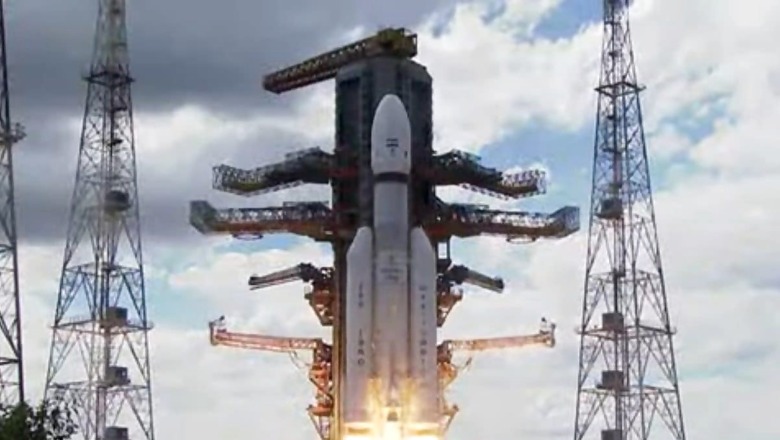
views
Chandrayaan-3, India’s ambitious lunar mission, is approaching its final phase before departing for the Moon. In a tweet, the Indian Space Research Organisation (ISRO) said it has “successfully performed” the final orbit-raising maneuver (Earth-bound perigee firing) from Bengaluru today.
According to ISRO, the spacecraft is now expected to attain an orbit of 127609 km x 236 km. The achieved orbit will, however, be confirmed after the observations.
Chandrayaan-3 Mission: The orbit-raising maneuver (Earth-bound perigee firing) is performed successfully from ISTRAC/ISRO, Bengaluru.
The spacecraft is expected to attain an orbit of 127609 km x 236 km. The achieved orbit will be confirmed after the observations.
The next… pic.twitter.com/LYb4XBMaU3
— ISRO (@isro) July 25, 2023
The space agency also informed that the next firing, the TransLunar Injection (TLI), is planned for August 1, 2023, between 12am and 1am.
ISRO has announced that the spacecraft will align itself for lunar insertion when this maneuver is over. Chandrayaan-3, launched on July 14, has been steadily elevating its orbit around Earth, getting ready for its ultimate journey towards the moon.
ISRO’S MOON LANDING PLANS: A SECOND CHANCE AT HISTORY
The Chandrayaan payload, weighing 3,900 kg, comprises a lander, rover, and a propulsion module, which will remain integrated until it reaches the 100 km polar orbit around the moon. During the mission, the rover will solely communicate with the lander.
This mission holds significant importance for future interplanetary endeavors. “A safe landing is crucial for upcoming interplanetary missions. With grand plans for the Moon, India aims to be well-prepared,” says Dr. Seetha, a prominent scientist who played a key role in the success of the Mars Orbiter Mission (MOM) Mangalyaan.
Throughout its mission life of 14 Earth days, equivalent to one Lunar day, the spacecraft will conduct several in-situ experiments. It will examine the thermal properties near the moon’s polar region, measure seismic activity, and endeavor to comprehend the dynamics of the lunar system.
MISSION END AND SCIENTIFIC OBJECTIVES
The journey from Earth to the moon is projected to take approximately a month. The landing is currently scheduled for August 23-24, with possible adjustments depending on the moon’s sunrise. If needed, ISRO will consider rescheduling the landing for September. This descent phase is referred to as “15 minutes of terror” by former ISRO chairperson K. Sivan, making it a crucial moment for the mission’s success.
After landing, the lander named ‘Vikram’ will deploy four scientific payloads to study the moon’s surface temperature and subterranean characteristics. Additionally, the lander carries an instrument called ‘Spectro-polarimetry of HAbitable Planet Earth’ (SHAPE), designed to gather data on light emission and reflection from Earth. As the rover, ‘Pragyan,’ explores the lunar surface, it will perform chemical tests while moving across the terrain.















Comments
0 comment